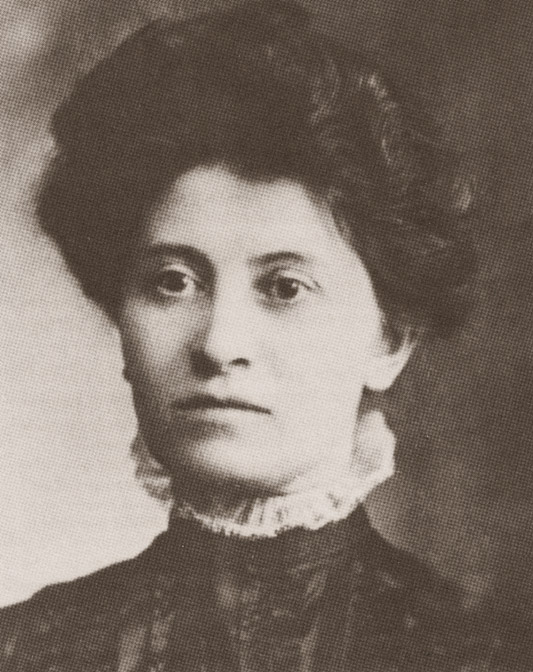National Woman's Day on:
[Wikipedia]
[Google]
[Amazon]
 Woman's Day, also known as National Woman's Day (a
Woman's Day, also known as National Woman's Day (a
 Woman's Day, also known as National Woman's Day (a
Woman's Day, also known as National Woman's Day (a retronym
A retronym is a newer name for something that differentiates it from something else that is newer, similar, or seen in everyday life; thus, avoiding confusion between the two.
Etymology
The term ''retronym'', a neologism composed of the combi ...
in regard to the later international observance), was a commemoration conceived by labor activist Theresa Malkiel, and organized principally in New York City by the Socialist Party of America
The Socialist Party of America (SPA) was a socialist political party in the United States formed in 1901 by a merger between the three-year-old Social Democratic Party of America and disaffected elements of the Socialist Labor Party of America ...
on the last Sunday in February in 1909 and 1910. It was the immediate predecessor to International Women's Day
International Women's Day (IWD) is celebrated on 8 March, commemorating women's fight for equality and liberation along with the women's rights movement. International Women's Day gives focus to issues such as gender equality, reproductive righ ...
which began to develop globally in 1911, although it was still observed in the United States in February rather than in March for several years.
Background
There is an account of Woman's Day being inspired by an 1857 garment strike in New York City, but this appears to be a fabrication from a French ideological dispute. Neither was it based on a particular strike in 1908, as is sometimes stated. Some American women socialists disagreed with a resolution at the 1907 International Socialist Women's Conference that discouraged cooperation with non-socialist suffrage activists, and subsequently in 1908 the Woman's National Committee led by Theresa Malkiel was established by theSocialist Party of America
The Socialist Party of America (SPA) was a socialist political party in the United States formed in 1901 by a merger between the three-year-old Social Democratic Party of America and disaffected elements of the Socialist Labor Party of America ...
and they expressed broad support for suffrage.
The Socialist Party first called in December 1908 for demonstrations for women's suffrage
Women's suffrage is the women's rights, right of women to Suffrage, vote in elections. Several instances occurred in recent centuries where women were selectively given, then stripped of, the right to vote. In Sweden, conditional women's suffra ...
in the coming February.
Events
On February 23, 1909, Leonora O'Reilly addressed an audience of 2,000 at the Murray Hill Lyceum.Charlotte Perkins Gilman
Charlotte Anna Perkins Gilman (; née Perkins; July 3, 1860 – August 17, 1935), also known by her first married name Charlotte Perkins Stetson, was an American humanist, novelist, writer, lecturer, early sociologist, advocate for social reform ...
also spoke at the Labor Lyceum and Parkside Church in Brooklyn, New York.
On February 27, 1910, Rose Schneiderman, Charlotte Perkins Gilman, and Meta L. Stern spoke at Carnegie Hall
Carnegie Hall ( ) is a concert venue in Midtown Manhattan, New York City. It is at 881 Seventh Avenue (Manhattan), Seventh Avenue, occupying the east side of Seventh Avenue between 56th Street (Manhattan), 56th and 57th Street (Manhattan), 57t ...
, and expressed sympathy for the Philadelphia general strike. This was the first time it was actually known as "Woman's Day". By this year, commemorations were spreading across the United States, as reported in '' The Progressive Woman''.
On February 25, 1911, May Wood Simons and Bertha M. Fraser spoke at Carnegie Hall.
Like International Workers' Day
International Workers' Day, also called Labour Day in some countries and often referred to as May Day, is a celebration of Wage labour, labourers and the working classes that is promoted by the international labour movement and occurs every yea ...
(May Day), International Women's Day originated early in the United States, but achieved greater 20th century popularity outside of that country.
See also
* New York shirtwaist strike of 1909 *Triangle Shirtwaist Factory fire
The Triangle Shirtwaist Factory fire in the Greenwich Village neighborhood of Manhattan, a borough of New York City, on Saturday, March 25, 1911, was the deadliest List of industrial disasters, industrial disaster in the history of the city, an ...
References
{{reflist Feminist protests History of New York City History of women's rights in the United States Observances in New York City Socialist Party of America